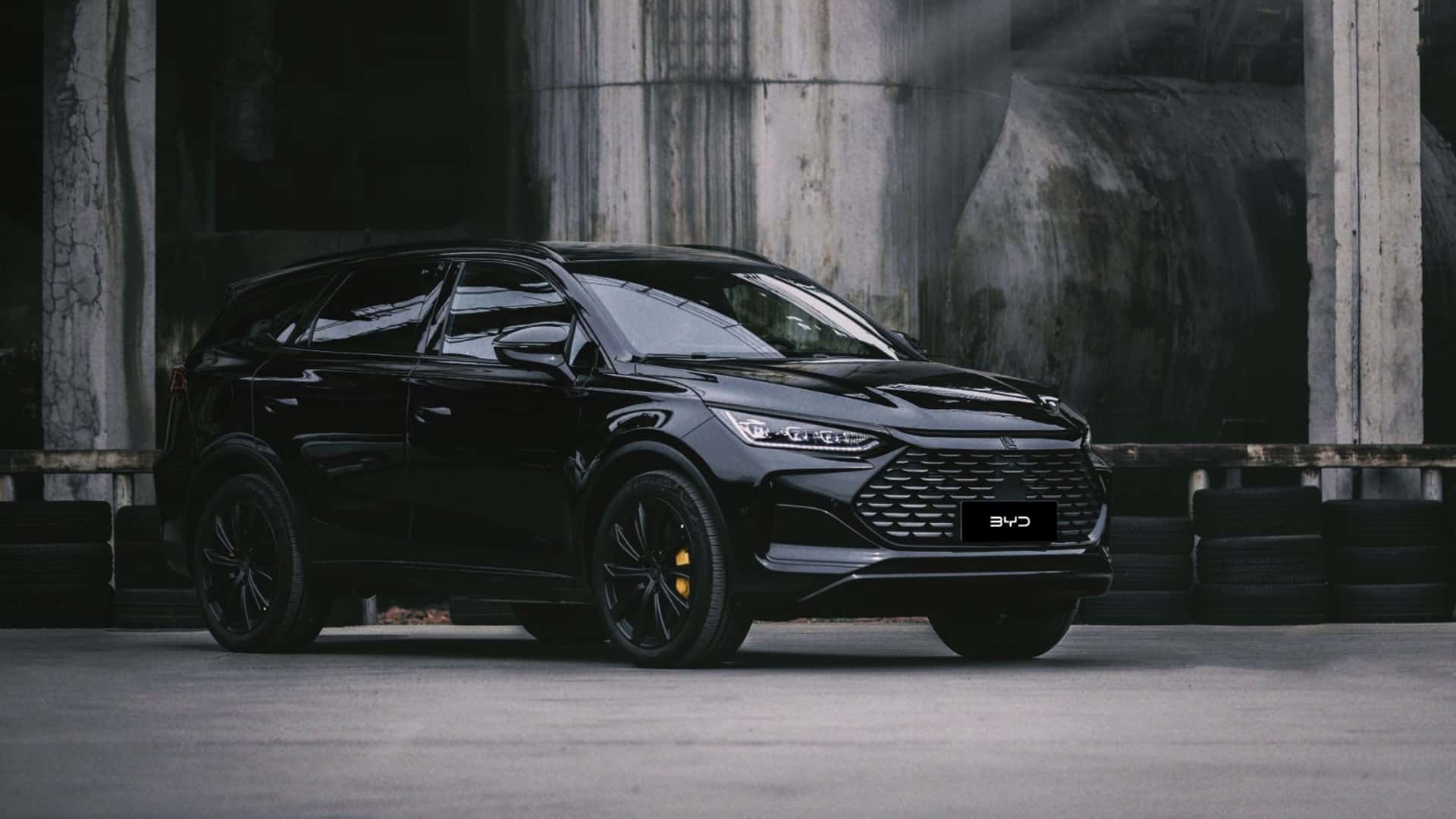Luxury Car Sales In China: Why BMW And Porsche Are Facing Headwinds

Table of Contents
Rising Domestic Competition
The rise of powerful domestic competitors is a major factor impacting luxury car sales in China. This increased competition is two-pronged: the emergence of strong Chinese luxury brands and their aggressive pricing strategies.
The Rise of Chinese Luxury Brands
Chinese automakers are no longer playing catch-up. They're aggressively investing in research and development, creating sophisticated vehicles that rival – and in some cases surpass – the established European brands in terms of quality, features, and design.
- Increased R&D investment by Chinese brands: Massive investments in technology and design are fueling the development of high-end vehicles with advanced features.
- Government support for the domestic auto industry: Government initiatives and subsidies are fostering the growth of Chinese auto manufacturers, giving them a competitive edge.
- Appealing designs and features catering to Chinese consumer preferences: Chinese brands are expertly tailoring their vehicles to the specific tastes and preferences of the domestic market, achieving strong brand resonance.
- Stronger brand loyalty among domestic consumers: A growing sense of national pride is driving increased loyalty towards homegrown brands, impacting market share for international players.
Aggressive Pricing Strategies from Domestic Rivals
Chinese luxury car brands aren't just offering competitive products; they're also employing aggressive pricing strategies. This creates intense price wars, significantly impacting the profit margins of established brands like BMW and Porsche.
- Price wars impacting profit margins: The pressure to match or undercut prices is squeezing profitability for international luxury brands.
- Need for luxury brands to adjust pricing to stay competitive: Maintaining market share requires adapting pricing strategies, potentially impacting the perceived luxury image.
- Impact on brand perception and luxury image: Aggressive price competition can challenge the carefully cultivated image of exclusivity and prestige associated with these luxury marques.
Shifting Consumer Preferences
Beyond the competitive landscape, evolving consumer preferences are also significantly impacting luxury car sales in China. Two key trends stand out: the explosive growth in demand for electric vehicles (EVs) and an increasing focus on cutting-edge technology.
Demand for Electric Vehicles (EVs)
The Chinese government's strong push towards electric vehicles, coupled with growing environmental awareness among consumers, is driving a rapid shift in the market. This presents a major challenge for traditional luxury car manufacturers who might be slow to adapt.
- Government incentives for EV adoption: Substantial subsidies and tax breaks are accelerating the adoption of EVs in China.
- Growing awareness of environmental concerns: Chinese consumers are increasingly conscious of environmental issues, favoring eco-friendly options.
- Technological advancements in Chinese EV technology: Chinese companies are at the forefront of EV innovation, offering competitive and technologically advanced vehicles.
- Luxury brands struggling to keep pace with EV innovation: Established luxury brands need to invest heavily to compete with the rapid advancements in Chinese EV technology.
Focus on Technology and Innovation
Chinese consumers expect advanced technology features in their vehicles, not just luxury appointments. This emphasis on technology is pushing luxury brands to continuously innovate and upgrade their offerings to stay competitive.
- Demand for advanced driver-assistance systems (ADAS): Features like lane-keeping assist, adaptive cruise control, and autonomous emergency braking are highly sought after.
- Preference for connected car features and integration: Seamless smartphone integration, over-the-air updates, and advanced infotainment systems are essential.
- Importance of digital experiences and user interfaces: Intuitive and user-friendly interfaces are crucial for satisfying tech-savvy Chinese consumers.
- Need for software updates and over-the-air functionalities: Regular software updates are expected to keep vehicles current and competitive.
Economic Slowdown and Geopolitical Factors
Macroeconomic factors and geopolitical uncertainties are further adding to the headwinds facing luxury car sales in China.
Economic Uncertainty and Reduced Consumer Spending
Economic uncertainty and slower growth are impacting consumer confidence, resulting in reduced spending on luxury goods, including high-end vehicles.
- Impact of fluctuating currency exchange rates: Currency fluctuations affect the pricing and affordability of imported luxury cars.
- Concerns over future economic stability: Uncertainty about future economic performance dampens consumer willingness to make large purchases.
- Decreased consumer discretionary spending: Luxury car purchases are often viewed as discretionary, making them vulnerable to economic downturns.
- Luxury car purchases viewed as less essential: In times of economic uncertainty, consumers prioritize essential purchases over luxury items.
Geopolitical Tensions and Trade Relations
Geopolitical tensions and trade disputes can significantly impact the sales of international luxury brands in China.
- Impact of trade wars and tariffs on import costs: Trade wars and tariffs increase the cost of importing luxury vehicles, affecting their price competitiveness.
- Concerns about supply chain disruptions: Geopolitical instability can disrupt supply chains, impacting the availability of vehicles.
- Negative sentiment towards foreign brands: Rising nationalism and negative sentiment towards foreign brands can affect consumer purchasing decisions.
Conclusion
The Chinese luxury car market is in a state of flux. While BMW and Porsche remain significant players, they face intense pressure from various directions. To thrive in this challenging environment, these brands must proactively adapt by investing heavily in electric vehicles, prioritizing technological innovation, and carefully tailoring their offerings to the evolving preferences of Chinese consumers. Understanding the headwinds affecting luxury car sales in China is crucial for navigating this dynamic market and ensuring future success. Deepen your understanding of the complexities of the luxury car sales in China market by exploring further research and analysis.

Featured Posts
-
 The Role Of Human Creativity In The Ai Age A Microsoft Perspective
Apr 27, 2025
The Role Of Human Creativity In The Ai Age A Microsoft Perspective
Apr 27, 2025 -
 Political Polarization In Canada The Case Of Alberta And Anti Trump Sentiment
Apr 27, 2025
Political Polarization In Canada The Case Of Alberta And Anti Trump Sentiment
Apr 27, 2025 -
 Kalinskaya Triumphs Over Keys In Charleston Quarterfinal
Apr 27, 2025
Kalinskaya Triumphs Over Keys In Charleston Quarterfinal
Apr 27, 2025 -
 Alberto Ardila Olivares Garantia De Gol
Apr 27, 2025
Alberto Ardila Olivares Garantia De Gol
Apr 27, 2025 -
 Ariana Grandes Dramatic Hair And Tattoo Transformation A Professionals Perspective
Apr 27, 2025
Ariana Grandes Dramatic Hair And Tattoo Transformation A Professionals Perspective
Apr 27, 2025
